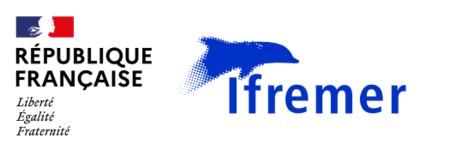Shellfish farming
Monitoring marine mollusc health and support for the oyster production industry are part of the missions of IFREMER.
Monitoring marine mollusc health
Health monitoring of marine molluscs has been carried out since 1992 through the REPAMO network (Mollusc Pathology Network) in application of European regulations on aquatic species. This monitoring network examines the health status of molluscs on the mainland French coast, from natural populations or from farmed areas to screen for and detect pathogens. It meets the French regulations and public procurement contract with the Ministry of Agriculture through the French Directorate General for Food (DGAL), the competent authority on marine mollusc health.
Because preventive strategies are preferable to curative strategies in the shellfish sector, IFREMER recommends monitoring for early detection of shellfish infections with exotic and emergent pathogens. Therefore, using the available regulatory tools, two complementary risk-based approaches are implemented:
- The first is unplanned, event-based surveillance and relies on the reporting of shellfish mortalities by any stakeholder in the shellfish sector,
- The second is pro-active, planned surveillance, targeting a finite set of infections, and based on the regular monitoring of health indicators.
Since 2015, a medium-term scheme has been set up to develop the early detection of shellfish infections with exotic and emerging pathogens. Three types of surveillance activities are deployed and coordinated by IFREMER:
- planned surveillance of mortalities and diseases in the Pacific oyster Crassostrea gigas through the RESCO observation network;
- planned surveillance of mortalities and disease in the blue mussel Mytilus edulis through the Mytilobs observation network;
- outbreak surveillance of mortalities in other shellfish species of interest following reporting of shellfish mortalities by a shellfish professional.
In parallel, surveillance is accompanied by methodological suggestions proposed by IFREMER to optimise surveillance protocols as part of IFREMER’s scientific and technical support services for the DGAL.
An IFREMER laboratory was chosen by the French government agency (DGAL) and the European Union to be the reference laboratory for marine mollusc diseases: the Laboratoire de Génétique et Pathologie des Mollusques Marins (LGPMM) at La Tremblade which is the National Reference Laboratory (NRL) and European Union Reference Laboratory (EURL). It thus contributes to the improvement and the standardisation of diagnosis and monitoring of mollusc diseases in the European Union.
Support for the oyster production industry
Since 2009, IFREMER has been supporting oyster farming by supplying French hatcheries with tetraploid oysters. These animal stocks are produced directly from diploid oysters and maintained in laboratory installations at the Laboratoire de Génétique et Pathologie des Mollusques Marins (LGPMM) at La Tremblade. Their offspring, obtained each year via simple crosses are grown and provided to hatcheries after checking their health status and their developmental stage. In parallel, following IFREMER’s desire to transfer this production activity to other stakeholders in the oyster industry, the Institute worked with the Directorate for Sea Fisheries and Aquaculture to define a regulatory framework to safeguard against the spread of tetraploid molluscs.
Assessments
IFREMER regularly carries out assessments for the Directorate for Sea Fisheries and Aquaculture, particularly of shellfish mortalities that have occurred repeatedly over the past few years. IFREMER conducts various studies as part of an annual work contract established with DPMA for shellfish and fish farming. Finally, IFREMER also transfers its research results as part of framework agreements signed with other shellfish stakeholders such as the SYSAAF association (Association of French Bird, Fish and Shellfish Breeders) and CREAA (Regional Centre for Experimentation and Applications in Aquaculture).
